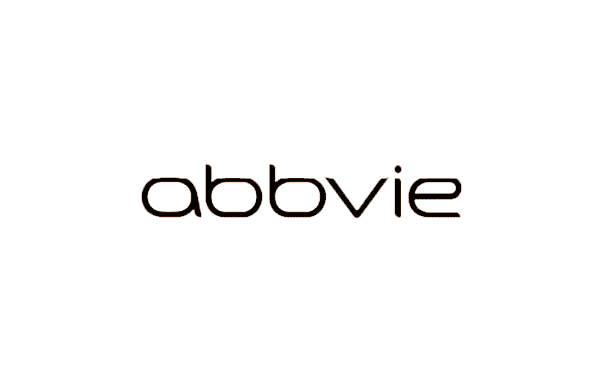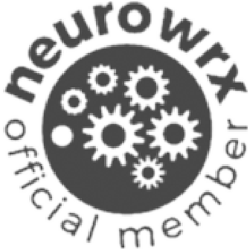Episode Transcript
Rachael Brusic Welcome to On the Verge. I am your host, Rachael Brusic, with one of my co-hosts, Tara May, and today we are interviewing Scott Steindorff.
So Scott, tell us—ah, we—tell us a little bit about yourself. We’d love to hear about, y’know, your own journey, y’know, and your own diagnosis, an-and how it’s kind of changed you.
Scott Steindorff Well, I grew up in a small town in Minnesota, not far from you guys. And … I was having kind of speech difficulties as a kid. I had social issues as a kid. I was getting bullied terribly. I couldn’t make eye contact. Apparently, I stared into space. And at the age of 10 the teachers took me out of the classroom and said, “We think you’re sniffing glue because you’re gone.” And that was my first diagnosis: I’m sniffing glue. So … my parents came to the school. I was very upset. I had never done anything like that. And so, y’know, technically, that’s my first diagnosis, and it was, um, pretty traumatic. Y’know, I was in counseling. And y—y’know, I’m 63. So back then, it just wasn’t a common thing. I mean, autism hasn’t—y’know—been really thoroughly diagnosed until 2013, people. So I feel there’s a whole lost generation of people like me that are probably on the spectrum.
Rachael Brusic A-and how do you feel navigating the world without really having that—those words to kind of describe how—y’know, how you felt, how you interacted with the world, how you saw things? How did that kind of change over the decades?
Scott Steindorff I mean, I knew I was different. I knew I was socially awkward. I knew I had challenges. I think emotions were something that I was really trying to figure out, even as a teenager. I started taking acting lessons … and, y’know, getting into the theater. And it was really to try to express and understand what I was feeling, and it took a long time to understand that.
Rachael Brusic Now I know you’re very, very much part of the film industry. And … did you have any challenges, and how did it kind of help you express kind of what you saw and how you felt into your movies?
Scott Steindorff Well, at a very early age, I was—I took a speed reading class. And I think—I think I was 10 or 11, and I—I became a voracious reader, and I could memorize pages and content, so I knew I had something there. Um … and—and then I was expressing myself through skiing at an early age and became a competitive skier. And that’s how I got into movies and television and as a ski stunt skier, and did some commercials. And that’s what I—I just knew I—movies really affected me emotionally, and so I knew at 17 I wanted to make movies.
Rachael Brusic Now, I know that you and I have, ah—also, I believe we made a documentary that just recently came out—ah, regarding neurodiversity, and I’m just curious: How—how has the reception been?
Scott Steindorff Well, the movie—my movie’s not out yet. It’s coming out April 1st on streaming. Um, so it’s played at a couple festivals and test screenings, and y’know, it’s very, very favorable. I went to … It’s called Understanding Autism. I went to London, Cambridge, 30 cities in America, Canada, Hawaii. And I filmed a multitude of people and families and some of the top researchers in the world about autism, from Cambridge University, Simon Baron-Cohen, to MIT, Harvard, UCLA, and to try to understand what is autism and what it’s not, because I feel that there’s so much misinformation out there.
Rachael Brusic And—and having kind of had that wide breadth of—of research data, uh, did you find any similarities o-or things that were really striking?
Scott Steindorff Um, yeah, I mean I, it’s—what I surmise so far, because I’m learning every day, I think we’re at the beginning. I think we’re at the beginning of understanding autism. I think taking data from even 10 years ago is irrelevant, because we’re starting—what—what I really realized when I went to Cambridge, where they do—it’s probably the biggest brain research place in the world—is that we’re just starting to understand how the brain operates and how autism and ADHD and these things … y-y’know—what they’re about and how we can deal with it. So I—I really feel … we haven’t figured anything out yet. And we need to educate pediatricians, doctors, the medical community, families. And we need to get real information, “What is autism, and how can we help people?” I think the biggest thing that I learned and the biggest challenges for a lot of … autistic families is that the only way they can get insurance is through ABA therapy, which recently just changed, but we don’t have a replacement, um, of a—of a therapy. Uh, I think there’s a lot being developed right now to help people, to help non-speakers get devices, to help people understand, “I’m never gonna be neurotypical. Do not create a program where you’re going to try to get me to adjust and … and operate like a neurotypical.”
And so I think that’s the biggest thing that we need to really look at is in all these therapies. Don’t try to take autistic people and think that you’re going to make them, you know, neurotypical. Yes, we need to learn life skills and operate in the world—but we need to be uniquely ourselves.
Rachael Brusic You know, I-I think that’s—that’s very true. And as someone who kind of grew up, ah, I—I got diagnosed at about 10 myself, ah, and—and I had been in speech and all these therapies. But it—what you say is true. It really felt like, y’know, they were trying to enforce the masking that I was doing when around people, and I found that it was—it was very detrimental, because at the end of the day, after masking all the time, I was exhausted, I was unhappy, you know. And—and I think there are a lot of stigmas. I think that we also should be fighting to just say, “Hey, you know, people are different. But don’t try to force, you know, neurotypical standards on somebody who thinks differently.”
Scott Steindorff And … you—you bring up a really good point about masking, and I—I would mask by smiling to hide my pain, and I was—it was painful for me a lot of the times, and I was processing feelings that I didn’t understand. So I feel that, you know, we—we need to be our authentic selves. And you know, I—I interviewed some kids and went to an autism school in Minnesota. It was fabulous, you know, because they’re around people that are letting them be themselves. And, you know, it’s the same with ADHD. You’re just not going to turn a duck into geese, and—and trying is—it’s old school, and it doesn’t work. We live in a whole different world, and we need to start over and—and take the aspects that work and advance them into this time period.
Rachael Brusic Now, ah, when you did kind of visit that school, what did you kind of—what really struck out to you, ah, when you interviewed these kids when they were around other people on the spectrum, compared to neurotypicals?
Scott Steindorff They thrived. And what I wi—I wish I would have gone to a school like that. They were—they were thriving. They were really, I—I mean I—i-in my documentary, I follow this 15-year-old girl who didn’t speak till she was 11 and got—got kicked out of a regular school. And she, um … I was interviewing her, and she ha—she goes, “I have to leave early, because I have my job training class of how to get a job. And I really want to get a job this summer.” And I remember … getting really emotional, “How cool that is, you know, that these kids are learning?” You can’t teach people on the spectrum the same way that you teach neurotypical people. We’re just not going to live in this little box. And nor should we. And you know— Rachael Brusic Absolutely! Scott Steindorff A-and what I surmise—a-and that’s why I’m not a fan, I—I mean just clearly, of the old model of ABA therapy. It doesn’t work—it doesn’t work for—I can debate anybody on this. It does not work, because you’re not letting me be myself. And the non-speakers have to have devices. And I’m a real—trying to advance, y’know, the talk of—of that. And you know tha—you know they say that the non-speakers don’t have the intelligence. Well, I interviewed a dozen non-speakers: Elizabeth Bonkers and all these kids that are so intelligent. So you gotta let people be their authentic selves.
And to—I think the biggest thing—the takeaway is emotional regulation. Teaching people how to—on the spectrum—how to identify their feelings, process, um, understand them, and then learn how to express them. They don’t even teach neurotypical kids that. And—and I think that’s a big plus, if we can nail that one.
Rachael Brusic I think—I think that’s true also. And I—as someone who also grew up on the spectrum, I—I think … there—there was a, ahm, how do you say, there—there was like a misdiagnosis all the time in the psychology field. Like, for example, if—if somebody was suffering from, ah, suicidal ideation or—or they had explosive outbursts, you know, they would label that person as depressed or whatever. But in reality, if they’re autistic, they may just be having, kind of, you know, an auti—autistic overload for a minute. You know, they may just be catastrophizing something, because they feel very overwhelmed. And being able to have that understanding as an autistic person really helps you kind of grasp, you know, how better to manage, how better to—to thrive and survive in the world because you can recognize, “Hey, I’m overwhelmed. Hey, I’m doing this,” instead of, “Oh, this is what’s wrong with me. That person says that’s what’s wrong with me. This person says I need to do this or that.” In reality, it’s just understanding ourselves and being authentic to the best we can. And I think we all should be able to do that, whether you’re neurotypical or neurodiverse.
But, ah, I—I think th-the outreach you’re doing is fantastic in the films, and—and I’d—I’d love to hear more about, um, your time in the industry, and—and how people have kind of approached you, a-and—and their views may have changed. Things have evolved over time, because of your work. And I’d just—I’d love to hear what specifically, um … how—how has this changed you, this drive in the industry?
Scott Steindorff Well, I have three adult children that are on the spectrum and understanding them, and understanding myself and understanding us as a family has been really beautiful. And to—to overcome it. And when I really—I end the movie with, “We live in an autistic world”. The computers were created by an autistic man. Our biggest social network was created by an autistic person. The—Tesla and our electric cars and spaceships are created by an autistic person. All the great buildings in New York, several of the architects that created—are all autistic. We live in an autistic world. Let—let people dream and thrive, because here is the beauty: Whether you’re, y’know, at a different level on the spectrum or not, you look at things differently. And that’s where creativity comes from. You know, like the art, um, behind—behind Tara is so amazing. And I interviewed amazing autistic artists, because they look at things differently.
And so, you know, about four years ago, The Hollywood Reportal—Reporter did a piece on me about, I came out as being autistic. And I’ve never in all my successes, or whatever in this business, I’ve never had so many people reach out to me, “I have a son that’s autistic. I have a daughter that’s autistic. Can you talk to my friend? I’m autistic.” I had—I’m not l[y]—over hundreds of calls. And—and so it was such, we—we don’t have the information out there. We need more accurate information about what is autism. We need to, y’know, like you were describing about, you know, suicidal ideations and all these behaviors, and they call those people bipolar and put them on meds, and/or depressed and put them on pills. We need to train—autistic people need to train medical professionals and pediatricians and doctors; just look for signs of this and—and get information to the parents.
But you know, I-I’m—I’m lucky. I still struggle. There—there’s nobody that has autism that doesn’t have struggles, emotionally, meltdowns, or I just curl up on the floor, and I don’t want to go out—you know, I accept that. But I also wake up in the morning looking at the world differently, and I’m able to overcome a lot of challenges, because I’m autistic. It’s definitely created, you know, I can, I—I pitched a movie star yesterday a—an idea just briefly. And then this morning, I came out—up with a whole idea. And they’re like, “I want to do it,” you know. So it’s that processing in our brains that goes at such a different level. You know, I’ve made great movies and TV shows that I’m very proud of. And—and I couldn’t have done that if I didn’t see. You know, I—I think autistic people are very intuitive and have vision. And—and so—especially the non-speakers; I—I find that the non-speakers, the ones that have struggled the most, have the most insights of life. And it’s really fascinating to me.
Rachael Brusic I—I definitely have seen that. And I’ve—I’ve personally seen people, uh, who are non-speakers who—who never communicated. Uh, there was someone even at our company who—who came in, and they were not as communicative. Ah, but I found that even those individuals, when surrounded by other people on the spectrum, begin to open up, and they begin to have that socialization. Because they feel … I—the way I would describe it is—is—is they feel that acceptance. They feel that they’re with their own people. They’re with people that understand how they think. They get their references. They—it’s a completely different form of socialization. And I think, like you said, the ABA, there’s, you know, we need to retrain it, because the idea is that it’s not that it’s necessarily a disability by any means. It can be, if that’s how people want to identify it. But, in reality, I really think there’s just that disconnect of we’re just differently minded than other people. We—we communicate differently, and when we’re with our own kind we thrive, and when we try to interact with the neurotypical world, there’s that disconnect. But I think that there needs to stop being a push of, “You need to just accept that you, y’know, live in a neurotypical world. You need to behave this way. You need to do this.” Because, like you said, there—there is a lot of creativity out there. There is a lot of fantastic talents. There is a lot of incredible ideas. That—and we—and you-you’re right. We live in an autistic world, a place that was built by all of us. And I think that’s something that society definitely needs to celebrate more.definitely have seen that. And I’ve personally seen people who are non-speakers who never communicated. There was someone even at our company who came in, and they were not as communicative. But I found that even those individuals, when surrounded by other people on the spectrum, begin to open up, and they begin to have that socialization. And because they feel, the way I would describe it is they feel that acceptance. They feel that they’re with their own people. They’re with people that understand how they think. They get their references. It’s a completely different form of socialization. And I think, like you said, the APA, there’s, you know, we need to retrain it, because the idea is that it’s not that it’s necessarily a disability by any means. It can be, if that’s how people want to identify it. But in reality, I really think there’s just that disconnect of we’re just differently minded than other people. We communicate differently, and when we’re with our own kind we thrive, and when we try to interact with the neurotypical world, there’s that disconnect. But I think that there needs to stop being a push of, “You need to just accept that you live in a neurotypical world. You need to behave this way. You need to do this.” Because, like you said, there is a lot of creativity out there. There is a lot of fantastic talents. There are a lot of incredible ideas. And you’re right. We live in an autistic world, a place that was built by all of us. And I think that’s something that society definitely needs to celebrate more.
Scott Steindorff Be aware—be aware of […]. And this whole that the education of autistic people and people on the spectrum has to change. The medical professional has to create courses, and therapists understand what autism is. There’s a real lack of understanding on that level that I’ve discovered around the whole world. And I think we’re just at the beginning. And you can’t take in—I’m sorry, I—ABA therapy, train somebody in 6 months to be an ABA therapist that doesn’t understand psychology—how the brain works—and try to make me neurotypical. That’s not okay. It’s not helpful to the autistic person. It’s detrimental. It creates shame and stigma. And it’s not healthy for the family. Y’know, what I’ve discovered on this journey with people that have challenges with autism is it brings the family together. I call it autistic love. I’ve never, y’know, it’s—it’s a deeper love.
I just had a non-speaker that reached out to me that wanted to meet me, and came to my house, in—in Malibu. And the father—the kid was 28. And he was s[o]—he went to Harvard; he graduated from Harvard. And he was brilliant, and he was communicating on his board at a rapid rate, and I was blown away. And … and the father gave up his own career when that son was born to just be with his son to help him. And I thought—and I said—and he goes, “I don’t regret it. It’s been a beautiful life.” And I thought, “How amazing,” you know? It’s—it’s like—as you said, celebrating … autism. And—and it’s really important.
So … I—I think—I think it’s changing. I think we’re breaking down walls and barriers. I—I’m also on the foundation of—or The ARC Foundation to try, as an autistic person, to be on the Board to help the US government and everybody understand what it is. But we’re just—we haven’t scratched the surface. An—and there’s a lot of shame and stigma still. And especially in my community. And … they don’t—people don’t want to talk about it. It’s almost like, you know, when somebody was an alcoholic, “Oh, I’m an alcoholic,” and there was shame and stigma. It’s the same with autism. And it-it-it—it’s really—we need to break that barrier and go, “You know, accept that you’re autistic. Be proud that you’re autistic.”
Rachael Brusic And I-I—I think your films are—kind of provide that—that positive view, that there is a lot of positivity to being autistic, that you can thrive, that there are a lot of successful people out there. And I think we need that positive, ah, perception, because I […] I feel the same thing in the autistic community, where there is a lot of stigma—there are people who just, you know, they’re kind of like, “Oh, yeah, I’m autistic.” And there—there’s not something that they—they really have pride about. And I think, like you said, that that stems from the societal approach, ah, that is the perception from a neurotypical community of, you know, that, “We need to change this. We need to have this person adapt to the way we live, we need to, y’know, try to integrate them.” And in reality … we should learn to combine both worlds.
Scott Steindorff Yeah. And you know, there’s … there’s so many—and there’s autistic people and families where they can’t get out of bed. And it’s—it’s a huge challenge. So the spectrum is wide, and—and those are very difficult situations. And … but we need to have empathy and hope, y’know, and compassion. And I-I just think … the world is getting disrupted in every way. And I think, having people understand that the brain, we’re all wired differently, and we’re all going to look at things differently. And autistic people have this ability, like in your company, um, that are just thriving and can figure things out that, you know, neurotypical people can’t. And that’s a beautiful thing, what you guys are doing. And I think there needs to be way more of it—way more opportunities. And—and even in Hollywood, they depict—in my opinion, most of the autistic people are not depicted accurately. They’re not hiring autistic people. There’s no—you know, I—we need you guys here. We—we need to help facilitate people to get employment, to get better lives, to get better opportunities. And … and again, you know, most neurotypical people don’t understand autism. Most autistic professionals don’t understand autism, ’cause we’re just at the beginning.
Tara May I think you hit on something really important there, Scott, that representation piece, right? There’s so little representation in entertainment of openly autistic people thriving because of all that stigma, right? There’s been a lack of understanding. And one of the things we’re really passionate about at Aspiritech, when we talk about autistic people, we aren’t talking about entry-level jobs, right? We’re talking about people who build and lead this organization every day. And we often have young autistic students come in the door, and they’ve never seen that openly being discussed, right? An autistic person in leadership, thriving at an organization. “They look just like me. They act like me. I feel this sense of community with them.”
I think you hit on something really important there, Scott, that representation piece, right? There’s so little representation in entertainment of openly autistic people thriving, ah, because of all that stigma, right? There’s been, um, a—a lack of understanding. And one of the things we’re really passionate about at Aspiritech—when we talk about autistic people, we aren’t talking about entry-level jobs, right? We’re talking about people who build and lead this organization every day. And we often have young autistic students come in the door, and they’ve never seen that openly being discussed, right? An autistic person in leadership, thriving at an organization, “They look just like me. They act like me,” right? “I feel this sense of community with them.”
Scott Steindorff Yeah, I just finished my film on ADHD. And … also, it’s the same thing, y’know, it’s just misunderstood. But there’s a new book out called Happiness Falls by Angie Kim, and I recommend everybody read it because the girl in—the main character is a 22-year-old girl who is on the spectrum, but her younger brother is 14, is a non-speaker. And it gets into all of that, and I acquired the rights, and I’m making a—a show about it. Um, it’s like Good Morning America‘s book of the year, and Barnes and Noble’s. It’s-it’s-it’s—it’s really an enjoyable story, but it—I think it’ll be the first show that really deals with a non-speaker and, y’know, the challenges and what happens, and … there’s a mystery in there.
But … so I—yeah, I want to do more, I—and I think there will be more, not just by me, but by other producers or studios. And, y’know, there was a lot of neurotypical people that were trying to buy the rights to this, ’cause it was so interesting—’cause you haven’t seen these characters. So, those are the autistic characters like your son, seeing the character on a co—we need that accurately portrayed. And … and so … I’m very excited to … ’cause I didn’t know what I wanted to do, you know? I just filmed three documentaries this year; one on autism, one on ADHD—I’m filming one on love, right now. And I thought, “How do—what do I do next?” You know, and then I read this book, and I’m like, “I have to make it.” And I told the author, “I’m the only person that can tell the story.”
Tara May “I am the one!” Yes, I love that. What was your inspiration to move? I mean, there was such acclaim for Station Eleven, right? It was fantastic; I loved it, myself. What inspired you to move from that to telling these documentary—documentary stories?
Scott Steindorff Well, I was gonna do one on autism, the documentary on autism, before Station Eleven, and then Station Eleven happened. And then when I was done, I started doing the autism documentary. And what inspired me is I—my entire family is affected by autism, and it’s so underrepresented, it’s so misunderstood. And—and people get hung up on things that are just not true, like “It’s caused by … you know, vaccines and this and that;” it’s—it’s just, there’s no truth to it. And the genetic is such a big factor. You know, I have a brother on the spectrum, most likely my sister, my father definitely was, three adult kids … Um, so I’m looking at that going, “Well, there’s something there.” So like, when you go to the doctor and you get your heart tested, we need thorough tests, we need thorough understanding. They don’t—the best doctors don’t understand autism. And so—
Tara May Your diagnosis story resonated so deeply with me because my dad’s first diagnosis was “stupid,” right? That was his. And I think about it all the time. This six-year-old dyslexic child being told he was stupid, and it’s horrible.
Scott Steindorff And they called me slow … and even my father called me slow as a child, and … you know, it-it’s … it’s very, very painful to be told those things at an early age that aren’t true. And I remember going, “You don’t know what’s going on in here.” And I’ve been lucky enough to prove to the world that there’s something going on here, and I’m okay.
Rachael Brusic The younger generations, in my generation, they—they used, um, they used to call us a—a “sped,” which they used to refer to as “special ed.” So, that was something they used to—to use with us in high school. And—and in reality, it was just that they just didn’t understand. Ah, and there really was that disconnect, because it was two different ways of interaction.
Well, we are coming close to time. But if you’re ever looking for an autistic actress, you know, you can always feel free to reach out to me. I totally volunteer. We want to thank you so much for your time and for your inspiring works that you do in the film industry and everything you’re doing for the positivity of the autistic community.
Scott Steindorff Well, you guys were a big inspiration to me. And what you guys are doing in Chicago is amazing at Aspiritech. And I’m really, we need that in every community. We need to have this around the world. And Temple Grandin is so, I remember I was in Cambridge, no, I was in London, and I was on in a van with my crew, and I’m talking to Temple Grandin, and she said, “You have to go to Chicago to film this. These guys are amazing, what they’re doing.” And I literally did. Flew to Chicago and met with you. And I’m just so grateful for the work you guys are doing. I’m grateful for this interview. Thank you so much.
Tara May Thank you, Scott. Thank you for what you’re doing for the neurodiversity movement. We’re on the verge of something, right? I think we share your belief that we’re just at the beginning here.
Scott Steindorff And go read Happiness Falls.
Tara May It’s on my list. I wrote it down.
Scott Steindorff All right. Thank you.
Tara May Thank you.



















